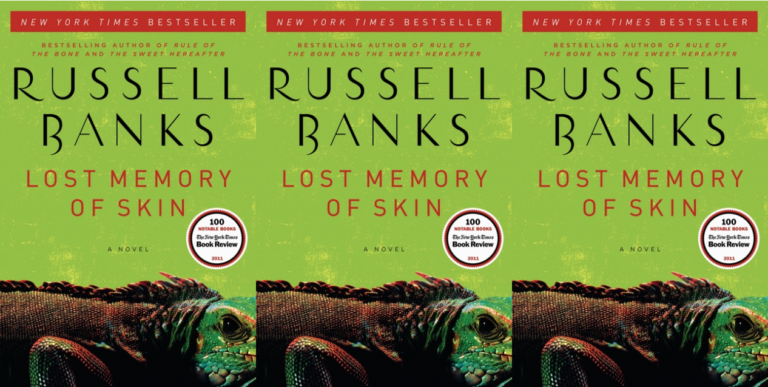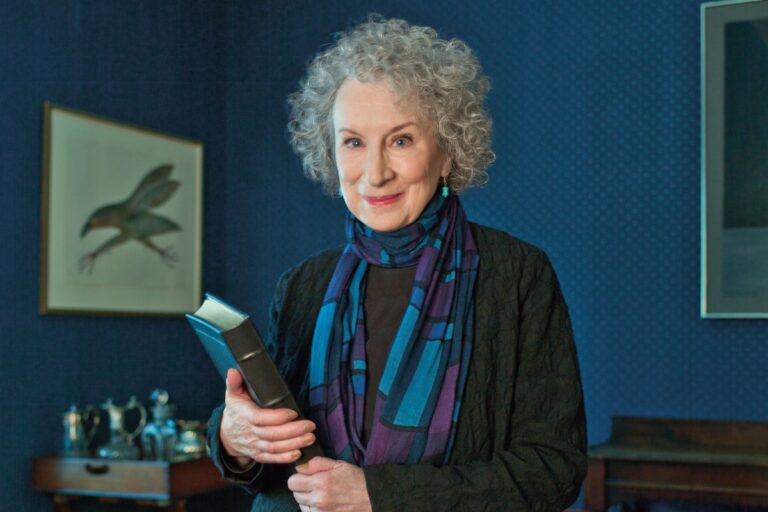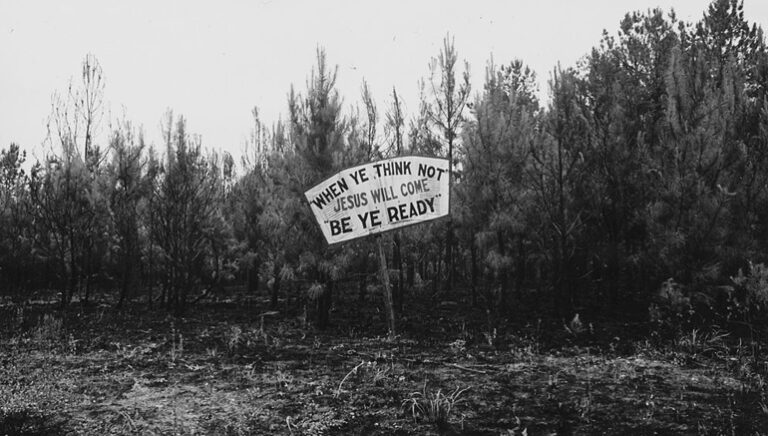Literary Boroughs #11: Washington, D.C.
The Literary Boroughs series will explore little-known and well-known literary communities across the country and world and show that while literary culture can exist online without regard to geographic location, it also continues to thrive locally. Posts are by no means exhaustive and we encourage our readers to contribute in the comment section. The series will run on our blog from May 2012 until AWP13 in Boston. Please enjoy the eleventh post on Washington, D.C. by Lacey N. Dunham. -Andrea Martucci, Ploughshares Managing Editor
The Washington, D.C. literary scene is too frequently overshadowed by Washington’s major industry: the federal government. Wedged between Maryland and Virginia on the east coast, D.C. is the hidden home to a diverse array of writers, past and present. Whether we’re hunkering down with our Moleskines and Le Pens in Logan Circle, Rock Creek Park, or near the panda exhibit at the National Zoo, Washingtonians are experts at ducking tourists in fanny packs and knee-length shorts in order to jot the perfect sentence.
City: Washington, D.C.
What Washington, D.C. is known for:
Scandals! Bureaucracy! Marion Barry! The West Wing!
What makes Washington, D.C. unique:
Politically, D.C. is the center of the federal government, yet residents of the District have no political representation in Congress. The city budget and all city laws (including those passed by resident majority vote) are reviewed annually for Congressional approval. Think about that next time you complain about paying taxes (ahem, Tea Partiers).
Resident writers:
D.C. and its surrounding suburbs brim with writers, novelists, and poets. Some lived here briefly while they or their spouses worked for the federal government (often as covert agents); other writers retired here and still others spent childhood years in the District. The partial list of writers past and present includes: Henry Rollins, the Foer Brothers (Franklin, Jonathan, and Joshua), Tracey Chevalier, Julia Child, Roald Dahl, Rachel Carson, Katherine Anne Porter, Edith Hamilton, Philip K. Dick, John Dos Passos, Langston Hughes, Fredrick Douglass, Zora Neale Hurston, Sandra Beasley, Edward P. Jones, Kay Redfield Jameson, Richard McCann, George Pelecanos, Danielle Evans, Daniel Silva, Howard Norman, Susan Coll, Carolyn Parkhurst, Judith Warner, and Judith Viorst.
Notably Ezra Pound—who received the charge of treason in 1945 but was declared unfit for trial—was institutionalized in St. Elizabeths Hospital, a psychiatric institution in southeast D.C., for over twelve years. While there Pound coordinated the tennis schedule and hosted literary salons in his room. The western campus of St. Elizabeths was abandoned in 2002 and is the future headquarters of the Department of Homeland Security.
Literary references:
To say that any political memoir, satire, or thriller get at the heart of a sometimes deeply divided city is like saying that the Disney movie Aladdin is an accurate representation of the Middle East. Gore Vidal’s tome Washington, D.C. is probably the book (politics and all) that comes closest. Andrew Holleran’s beautiful novel on mortality and memory, Grief, is predominantly set in Dupont Circle. Frank Rich’s memoir Ghost Light is as much the history of Connecticut Avenue as it is a passionate delivery of Rich falling in love with theatre and growing up with an abusive stepfather. Pulitzer Prize-winner Edward P. Jones (The Known World) captures the heart of black Washington—a world frequently removed from the zealous political swirl imparted by transplants and interlocutors.
Where to learn:
American University’s MFA in Creative Writing program is the most prestigious degree granting university program within the city limits. The D.C. area also boasts the University of Maryland’s MFA in Creative Writing program and the Johns Hopkins University of Baltimore’s extension campus offers an M.A. in Writing. George Mason University’s MFA in Creative Writing program hosts the annual Fall for the Book Festival and the Fairfax, VA campus serves as the headquarters for the Association of Writers & Writing Programs (AWP). In Bethesda, MD, The Writer’s Center offers non-degree granting classes in fiction, poetry, and creative non-fiction and hosts regular author readings.
Where to find reading material:
The Library of Congress’s gorgeous Beaux-Arts Thomas Jefferson Building on Capitol Hill is a main tourist attraction. The library building is open to the public but only Members of Congress, Supreme Court justices, and their affiliated staff can borrow books. The Library of Congress researches inquiries on behalf of Members of Congress and promotes literacy and American literature through programs that include the Center for the Book, The American Folklife Center (best known for its recent StoryCorps collaboration with NPR), and the U.S. Poet Laureate, a position currently held by Natasha Trethewey.
Recently, the District of Columbia Public Library has taken enormous steps to create inviting community spaces. The London-based architect David Adjaye designed new local branches for two low-income neighborhoods east of the Anacostia River. In affluent Tenleytown, the DCPL branch received a facelift as part of a larger redevelopment project along Wisconsin Avenue.
The National Archives serve as a preservation library and museum for the foundational documents of the U.S. In the hushed and dimly lit rotunda, visitors can view original copies of the U.S. Constitution, the Declaration of Independence, the Bill of Rights, and the Magna Carta.
D.C. has fantastic independent bookstores and, despite the loss of some major ones in the past few years, the indies have survived where the chains have not. In hip Dupont Circle, Kramerbooks & Afterwords Café is half bookstore, half restaurant and the cozy aisles and intimate atmosphere make it the perfect location for a book nerd date. Kramerbooks is rumored to have been Monica Lewinsky’s favorite bookstore in D.C.. Notably, the bookstore refused to disclose Lewinsky’s book purchasing records during the Clinton-Lewinsky scandal in 1997—even after Kenneth Starr presented them with a subpoena—sighting First Amendment concerns.
In the sleepy Van Ness neighborhood four miles north is Politics & Prose, a twenty-eight-year-old bookstore with an expert bookselling staff and selection. The bookstore offers more than 350 author readings each year, an Espresso Book Machine, literary trips to India, and dozens of literature classes and book groups. The store’s owners, Bradley Graham and Lissa Muscatine, are new to the game; they bought the store from its previous owners last year and have wasted no time in priming it for indie bookselling in the Twenty-First century. (Full disclosure: I used to be a bookseller at Politics & Prose.)
Teaching for Change is a non-profit bookstore located inside Busboys and Poets, a restaurant in the historic U Street neighborhood that takes its name from a Langston Hughes poem. The bookstore exclusively sells books that represent progressive politics, social justice and multicultural writing. In coordination with Busboys and Poets, the bookstore also schedules author readings and events, including dialogues on race, workers’ rights, and the Peace Café, a regular forum that brings together people of Muslim and Jewish faiths to promote understanding of each other’s cultures.
A handful of used bookstores round out D.C.’s list of places to shop local, including the darling Idle Times Books in vibrant Adam’s Morgan; out-of-print, used, and rare bookstore Second Story in Dupont Circle; the non-profit, used bookstore Books for America in Dupont Circle, whose proceeds support local schools and literacy building organizations; and Capitol Hill Books in Eastern Market, whose proprietor has a zealous passion for almost all topics.
Outside of the city limits, be sure to visit One More Page Books in Arlington, Virginia and Novel Places in Clarksburg, Maryland.
Where to get published:
D.C.’s literary magazines and presses are frequently overshadowed by another East Coast city’s publishing plethora (ahem); however, the District holds its own, albeit on a much smaller (and much less hipster-ish) scale.
District Lines is the new literary anthology published under the Politics & Prose bookstore imprint. The anthology accepts submissions in a wide range of genres as long as the submission relates in some way to Washington. Another new literary magazine is The Doctor T.J. Eckleburg Review, produced by the Johns Hopkins M.A. in Writing program. The journal cleverly takes its name from the The Great Gatsby. F. Scott Fitzgerald is buried alongside his wife Zelda in Rockville, Maryland, approximately fifteen miles outside D.C.
Barrelhouse Magazine is a print and online magazine publishing fiction, poetry, and non-fiction since 2005 with the mission to bring together pop culture and high art. Barrelhouse also offers online writing workshops, the monthly reading series Barrelhouse Presents, and writer’s conferences.
The George Washington Review is a bi-annual literary publication produced by George Washington University; Folio is a literary journal published by the literature program at American University. Potomac Review is Montgomery Community College’s literary journal and primarily publishes unsolicited submissions. Beltway Poetry Quarterly exclusively publishes the poems of Washington-area writers. For those who wish to try their hand at the stars, The Atlantic Monthly continues to publish poetry and short fiction alongside long form journalism (good luck!).
National Geographic Books releases gorgeous, full-color coffee table companions to many of their exhibits, as well as books with a socio-cultural and anthropological bent. Georgetown University Press specializes in scholarly books in bioethics, international affairs, and human rights, among others—the perfect late night companions for international development officers with insomnia. Brookings Institution Press publishes both the institution’s research findings and policy books.
Outside of the District are two independent publishers. Atticus Books—which also publishes the literary journal Atticus Review—is a literary fiction, multimedia press based in Maryland and headed by Dan Cafaro (full disclosure: I currently work as publicist for Atticus). In Arlington, Virginia, Richard Peabody and Lucinda Ebersole run Paycock Press and its companion literary journal Gargoyle Magazine.
Where to write:
With the average rent for a one-bedroom apartment running $1,500 a month or more, plenty of D.C. area writers pen their Great American Novel from the comfort of their coffee tables and beds to get the most from their rental unit.
Aside from Starbucks, writers have been known to turn to odd places, including Dolcezza, a homemade gelato shop; the Dupont Circle fountain; the National Mall (beware the tourists!); and the main reading room at the Library of Congress.
For those who prefer the comfort of a table, caffeine, and wireless connection, the basement room at Teasim in Penn Quarter is a quiet haven with a koi pond and delicious mochi. In Columbia Heights, Tynan is the coffee shop’s answer to IKEA: clean, modernistic, but with a touch of warmth and a Bon Iver soundtrack. Chinatown Coffee is centrally located to three of the five train lines, so writers can pop in for an hour or two of writing before cubicle-land exile. Modern Times Coffeehouse in the basement of Politics & Prose is a cozy retreat where one can play “Spot the New York Times/Washington Post/New Yorker Columnist” bingo while plucking away at the novel (or updating Pinterest).
Events/Festivals:
The National Book Festival was established by First Lady Laura Bush in 2001 and is organized by the Library of Congress; since then, the festival has expanded to two days of author readings and festivities on the National Mall. This year’s event runs September 22-23, 2012 and includes readings and appearances by Junot Diaz, T.C. Boyle, Philip Levine, Tayari Jones, Walter Dean Myers, Philip Roth, Mario Vargas Llosa, Sandra Cisneros, and Robert A. Caro.
The Split This Rock Poetry Festival: Poems of Provocation and Witness is a four-day festival occurring every two years. The festival takes its name from a Langston Hughes poem and aspires to bring poets into a greater role in public life and to introduce American poets to a more diverse audience. The next festival is scheduled for March 27-30, 2014.
The Washington D.C. JCC offers the Authors Out Loud program and the Hyman S. & Freda Bernstein Jewish Literary Festival. The Sixth & I Historic Synagogue hosts author readings (occasionally co-sponsored by Politics & Prose), music concerts, and stand-up comedy. Politics & Prose Bookstore is frequently lauded for its star-studded line-ups. Previous author appearances include Presidents Bill Clinton and Jimmy Carter, then-Senator Barack Obama, J.K. Rowling, Annie Leibovitz, Julie Andrews, and Toni Morrison. This fall—the store’s second under new owners—promises to be just as dazzling, with Kofi Annan, Paul Auster, Jonathan Kozol, and Salman Rushdie scheduled to appear.
D.C. Reads is an annual community read coordinated by the District of Columbia Public Library. The Humanities Council of D.C. supports organizations and individuals through a number of grants and programs.
Outside of the District, Bethesda and Kensington, Maryland each hold citywide literary festivals in the spring; the annual Baltimore Book Festival is scheduled for September 28-30, 2012.
Other:
While you’re in D.C., be sure to visit the Fredrick Douglass House in Anacostia. Douglass is most well known for his autobiography Narrative of the Life of Frederick Douglass, an American Slave but he also wrote and spoke widely on abolition and women’s rights.
The American Poetry Museum is a virtual museum and exhibition space for American poetry with headquarters in southeast Washington.
Finally, don’t miss what D.C. residents call “The Exorcist Steps.” William Peter Blatty’s novel The Exorcist, which inspired the film of the same name, is set in the D.C. neighborhood of Georgetown (Blatty was inspired to write the book while a student a Georgetown University). The 97 steps used in the movie’s famous final scene are located on M Street, NW.
Next post: August 15 | Verona, New Jersey …
BIO: Lacey N. Dunham’s fiction, essays, and reviews have appeared in The Collagist, Saltwater Quarterly, Ploughshares (online), Used Furniture Review, The Washington Spark, and The Feminist Review, among others. She is also editor of THIS Literary Magazine. Find her on Tumblr and follow her on Twitter @bookbent.
PHOTO CAPTIONS AND CREDITS:
All photos are original by the author and friends, or are available for use through the Creative Commons Licensing:
- St. Elizabeths Hospital
photo credit: Tom688
http://en.wikipedia.org/wiki/File:Center_building_at_Saint_Elizabeths,_August_23,_2006.jpg
Tom’s link: http://commons.wikimedia.org/wiki/User:Tomf688 - U.S. Capitol
photo credit: Lacey N. Dunham - Library of Congress
photo credit: Christina Hsu
http://www.flickr.com/photos/aloudnoise/5626328778/ - Politics & Prose
photo credit: Lars Townsend - Barrelhouse
photo credit: Barrelhouse Magazine - Frederick Douglass House
photo credit: released into the public domain - Exorcist Steps
photo credit: released into the public domain
Posts are by no means exhaustive and we encourage our readers to contribute in the comment section!


